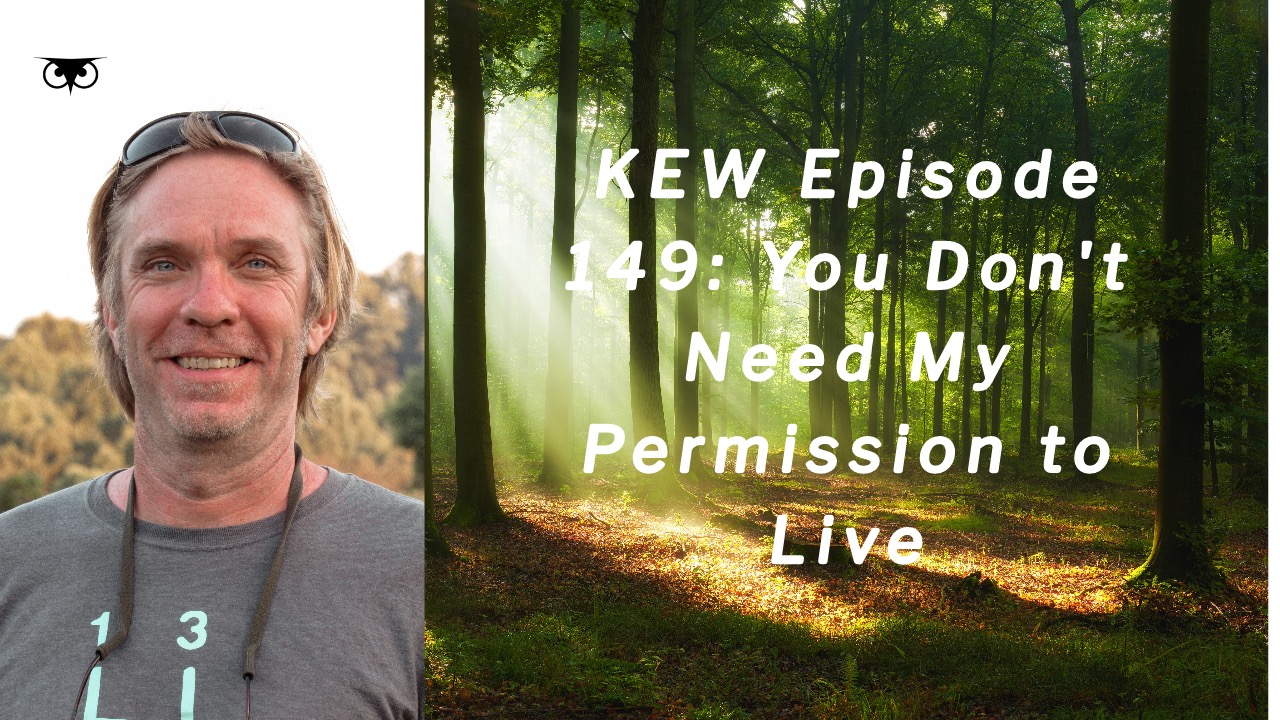Do you ever feel like what you want to do goes against what society ‘wants’ you to do? Like, maybe you want to be a painter, but your parents and your school tell you that you’ll never make any money. Maybe you want to take a gap year after high…
Tag: analysis paralysis
Radical Acceptance Can Help You Progress Through Life
Knowing yourself is an important part of being a complete human. Maybe this is just my opinion based on my own values, but it seems to be a theme. Throughout history there have been thinkers proclaiming the importance of knowing oneself. To justify this conclusion we can look at the…
“How Do I Know What to Choose!?” FLASHBACK KEW Episode 11: Analysis Paralysis
How you choose is more important than the choice itself
“Leaping into the Abyss Requires Faith, but Will Set You Free” KEW Episode 90: Improvisation, Yin-Yang, and the Grateful Dead
Leaping into the Abyss Will Set You Free
FLASHBACK! KEW Episode 4: Quiet vs. Distraction
Do you ever have trouble sleeping? Do you sometimes struggle with what to do next? Analysis paralysis style? How about when you are by yourself in a crowd. Do you feel like you have to pull out your phone? Personally, I have trouble just ‘being’, sometimes. And it’s really kind…
FLASHBACK! KEW Episode 60: The Are vs Should Problem – Jobs and Careers
Do you love your job? Are you happy with your career? Many of us will answer no to both of these questions. And it seems to me we visit these questions at two key moments in life: When we leave the nest, usually around 18 years old Sometime in midlife…
KEW Episode 75: How Do You Tell the Difference?
Do you ever ask yourself this question? I have asked myself this question for as long as I can remember. In fact, I use this argument as a way to justify complaining. It’s not a habit I am proud of and I’m working on changing it. But I often find…
FLASHBACK! KEW Episode 53: Are vs Should Examples
If you think about any element in your life you can probably see an example of the Are vs Should Problem. Sometimes it looks like indecision or Analysis Paralysis (and see Episode 11: Analysis Paralysis). Other times it feels like frustration or anger. In my experience I feel like I…
FLASHBACK! KEW Episode 50: The Are vs. Should Problem
The beginning of my investigation into the ‘Are vs. Should Problem’, or the struggle many of us experience between the person we ARE and the person we feel like we SHOULD BE. Have you ever experienced this? Most people I ask say, ‘doesn’t everyone?’. But I really don’t know. All…
KEW Episode 11: Analysis Paralysis
You definitely know about this one. So many choices when making a decision that you get overwhelmed. So overwhelmed, sometimes, that you can’t even MAKE the decision and end up stuck; paralyzed. Mostly, I think, it’s fear that keeps us stuck. Kind of like the Fear of Missing Out (FOMO)….

